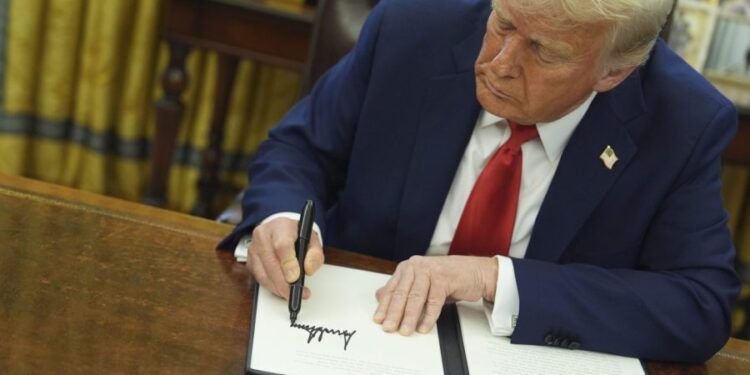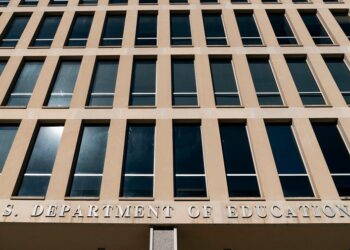
A federal judge in Washington, D.C., extended a block on President Trump’s widespread federal funding pause amid concerns the administration was still moving ahead despite two previous court orders ordering it to preserve the status quo.
U.S. District Judge Loren AliKhan cited affidavits from some nonprofits warning they could soon shut down because they are still experiencing issues accessing funds.
“The declarations and evidence presented by Plaintiffs paint a stark picture of nationwide panic in the wake of the funding freeze. Organizations with every conceivable mission — healthcare, scientific research, emergency shelters, and more — were shut out of funding portals or denied critical resources beginning on January 28,” AliKhan wrote in her 30-page ruling.
The Justice Department told AliKhan she had no authority to intervene after the Trump White House’s Office of Management and Budget (OMB) rescinded last week’s memo that sparked widespread confusion by ordering agencies to pause federal grants and loans.
AliKhan rejected the notion the case was moot. She also declined to impose various limitations on the scope of the injunction, which was requested by a group of nonprofits and health organizations that are suing.
“Each day that the pause continues to ripple across the country is an additional day that Americans are being denied access to programs that heal them, house them, and feed them. Because the funding freeze threatens the lifeline that keeps countless organizations operational, Plaintiffs have met their burden of showing irreparable harm,” wrote AliKhan, an appointee of former President Biden.
Her order blocks federal agencies “from implementing, giving effect to, or reinstating under a different name the directives” of the OMB memo and mandates agencies “release any disbursements” they previously froze.
“That is not appropriate relief, and underscores how the entire claim is noncognizable and, if allowed to proceed, would constitute an extraordinary intrusion into the Executive Branch,” the Justice Department wrote in court filings Monday.
AliKhan’s injunction is similar to one granted Friday by a federal judge in Rhode Island in a legal challenge to the OMB memo brought by 22 Democratic state attorneys general.
Judges in both cases highlighted White House press secretary Karoline Leavitt’s statement that the administration was only rescinding the OMB memo, not “federal funding freeze” itself. AliKhan, in particular, condemned Leavitt’s suggestion that the rescission was to “end any confusion” by the judge’s initial ruling last week preserving federal grants until she could hold a hearing.
“The court can think of few things more disingenuous,” AliKhan wrote. “Preventing a defendant from evading judicial review under such false pretenses is precisely why the voluntary cessation doctrine exists. The rescission, if it can be called that, appears to be nothing more than a thinly veiled attempt to prevent this court from granting relief.”
Together, both orders effectively preserve trillions of dollars’ worth of annual spending until the next stage of the lawsuits.
The freeze is part of broader efforts by the Trump administration in its early days to dramatically reshape the federal government and scrutinize federal spending.
Though the OMB memo was rescinded, the Justice Department has argued the administration still plans to freeze some funds in accordance with Trump’s flurry of executive orders that span issues like DEI, gender and foreign aid.
The Justice Department on Friday night, however, notified federal departments that they are currently prohibited from terminating any grants on the basis of the executive orders. The department is actively seeking clarity from the judge overseeing the states’ lawsuit about the scope of his ruling on Friday.
“Defendants do not read the Order to prevent the President or his advisors from communicating with federal agencies or the public about the President’s priorities regarding federal spending,” the Justice Department wrote in court filings.
“Nor do Defendants construe the Order as enjoining the President’s Executive Orders, which are plainly lawful and unchallenged in this case. Further, Defendants do not read the Order as imposing compliance obligations on federal agencies that are not Defendants in this case. Defendants respectfully request that the Court notify Defendants if they have misunderstood the intended scope of the Court’s Order,” the filing continued.







